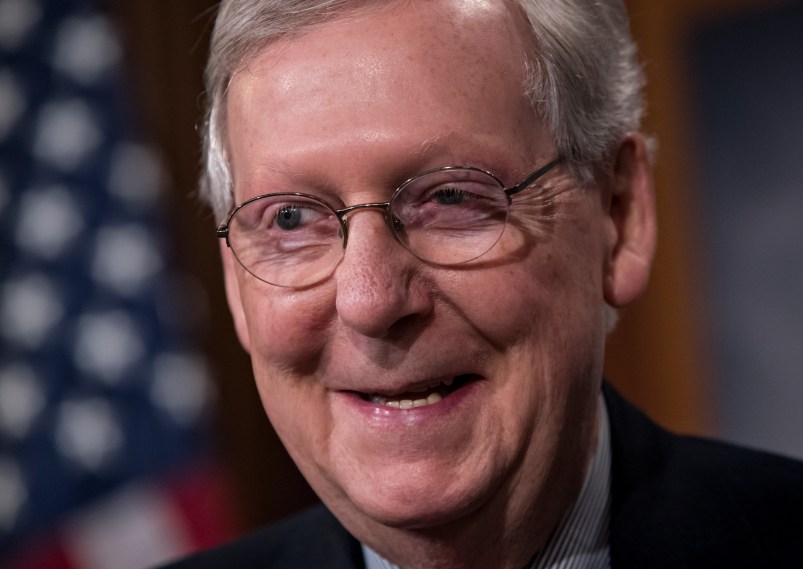Senate Majority Leader Mitch McConnell (R-KY) took a procedural step Wednesday that will allow the GOP to fast-track its Obamacare repeal efforts in the Senate and side-step the typical committee process.
McConnell began the process under what is known as Rule 14, according to the Senate minority whip’s office, to allow a repeal bill to be put directly on the Senate calendar so that it is available for a floor vote when Republicans are ready to vote on it. The move comes as GOP senators continue their closed-door meetings to hash out a deal that would secure the 50 votes they’ll need to pass legislation dismantling the Affordable Care Act, which they they are pushing through a process known as reconciliation that avoids a Democratic filibuster.
On Tuesday, the Senate Budget Committee Chairman Mike Enzi (R-WY) announced that the Senate parliamentarian cleared the House GOP’s repeal bill, the American Health Care Act, for Senate consideration under reconciliation. Democrats are still likely to challenge provisions of the bill, depending on what the Senate version of the legislation looks like, on the grounds that they violate the rules of reconciliation, which is limited to budgetary measures that affect the deficit.
The House bill imposes massive cuts to Medicaid, reworks the Obamacare’s tax credits, makes some of its insurer mandates optional for states, and eliminates many of the ACA taxes, mainly on the industry and high-earners. The CBO anticipated that 23 million fewer people would have health care coverage compared to current law.








“This way, nobody will know what we’ve done until it’s too late. Then let 'em whine. They’ll forget all about it in a couple months.”
Head-lemming (R-KY) ‘C’mon you guys, edge of the cliff coming up!’
Is there a House Freedom Caucasian sitting with the GOP senate to vet the bill? Does whatever the senate passes have a chance in the house?
Once we take the Congress, we need a motto: “It’s up to US to govern, since the Honorary Russian won’t.” or “Make America worth fighting for!”
Gee, you’d think that if Republicans were truly interested in improving healthcare that they’d solicit ideas from the Democrats.
But we know they’re not.
On the plus side, we should be grateful that McConnell is invoking Rule 14 of the Senate, rather than Rule 34. That would be unpleasant.